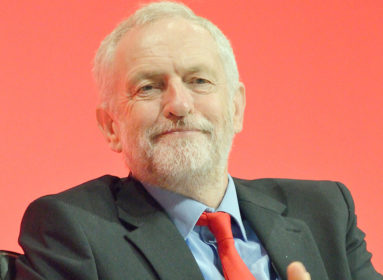By Cindy Mindell
STAMFORD – Stamford native Devra Jaffe-Berkowitz is a member of the National Young Leadership Cabinet, a philanthropic and leadership program within the Jewish Federations of North America (JFNA) comprising some 300 men and women aged 30 to 45 from the U.S. and Canada. In May, Jaffe-Berkowitz was one of 45 Cabinet members from 26 North American communities who took part in a mission to Greece.
An adjunct professor of religion and sociology at Sacred Heart University in Fairfield, Jaffe-Berkowitz is completing her PhD dissertation in sociology at Princeton, focusing on the sociology of religion.
She spoke with the Ledger about her recent visit to Greece and its Jewish communities.
Q: How did you become involved in the JFNA National Young Leadership Cabinet?
A: There are local Jewish Federations and the JFNA national system. I first became involved locally at the United Jewish Federation of Greater Stamford, New Canaan and Darien. Six years ago, then-president Fred Springer wanted to restart the local Young Leadership Division, which hadn’t been active for many years. I ended up getting tapped to be the founding president of it. I went to Israel with the Young Leadership professional, Dana Horowitz, on JFNA’s national young leadership mission, “Tel Aviv One,” and really got turned on to the national young leadership scene.
The National Young Leadership Cabinet is made up of people from around the country who are at a certain level of financial and emotional commitment to Federation, with a minimum annual gift of $5,000. When my gift got to that level, I was nominated by the Stamford community to be on Cabinet. Cabinet is a six-year program; I’m starting my fifth year.
Last year, I was much more involved locally in Stamford. After I finished my Young Leadership Division presidency, I was campaign chair for Federation. After that, I decided to get more involved nationally. Every year, there is a retreat and a study mission for Cabinet members. The retreat draws around 200 people; the study mission only has 40 to 60 participants.
I went last year on the study mission to Argentina and Chile and was really inspired and became much more involved. I applied to be in my current role, planning next year’s study mission.
Because there are fewer people on the missions, the experience is more intimate and hands-on, and you become more knowledgeable about what’s going on with JFNA’s overseas efforts through the American Jewish Joint Distribution Committee [JDC] and the Jewish Agency for Israel [JAFI].
Q: Why are you so interested in overseas Jewish communities?
A: My real passion, in terms of Federation, is overseas giving, and being in these places allows me to see what the dollars are doing around the world.
I guess it’s the same reason I’m interested in sociology: I like to understand how different Jewish communities operate, the different struggles they go through, and how Jews got to these communities and have sustained themselves since World War II.
The impact of local giving is more obvious: I can go to the JCC or a day school and see it, but to see what the dollars do internationally is exciting. When I travel, I always want to see the synagogue. We have organizations that help overseas Jewish communities, but that effort isn’t as personal to donors here because we’re not as individually connected to those far-off communities and most of us don’t get to visit them.
Seeing the faces of the people I am helping, hearing what people are going through, and seeing the appreciation for what the larger Jewish community is doing, is very different than intellectually knowing that my money is helping them. We’re all one global Jewish community and so many things are the same from country to country – you go to services almost anywhere and pick up the Siddur and it’s very familiar – but there are also a lot of differences.
Q: What did you experience on the study mission to Greece?
A: We visited Thessaloniki and Athens. The first night, in Thessaloniki, we had dinner with members of the Jewish community, young professionals in the same age range as us. One of the clear things that came out is that they’re very much like us. The Greek community is not like Jews in the Former Soviet Union, for example, where you’re meeting with a Bubbe on the third floor who hasn’t seen the outside world in months. They are somewhat assimilated professionals who want their children to become professionals; they have traveled to the U.S. and Israel, and they speak very good English.
Before the current financial crisis, the Greek Jewish community was very self-sustaining. [JAFI chairman] Natan Sharansky was saying that they were one of the most generous Jewish communities per capita, in terms of charitable giving. They are a sophisticated, cosmopolitan, philanthropic community.
Some communities in the world are used to needing money and that’s all they’ve ever known; the Greek Jewish community is not like that. I was interested in what it must be like, psychologically, to go from a community that gives to one that needs.
We met with the mayor of Thessaloniki, who told us the history of the city and the Jewish community during the Holocaust. We met with Jews hidden during the war. I was embarrassed that I knew so little: 96 percent of the Jews were exterminated, the highest kill ratio among Jewish communities. A scholar traveling with us said that the story of the Greek people during the Holocaust doesn’t get told, partly because our image of the victims is Yiddish-speaking Ashkenazi Jews, and the Jews of Thessaloniki spoke Ladino and don’t fit into that image. He called this a “double death” – the people died and their stories have died – and he charged us with keeping the stories alive. As the granddaughter of an Auschwitz survivor, that was very meaningful to me.
There is one synagogue in Thessaloniki that survived [out of 60] only because it was used as a storage facility by the Germans, who intended to destroy it after the war, but never did so. We met with the only rabbi for the 1,300 Jews in the city; he did a Yizkor service at the place where the Jews were deported to Auschwitz in 1942.
We spent most of the mission in Athens, the largest Greek Jewish community and met with Jewish leaders. A lot of Jewish professionals are out of work and many young single professionals are looking to move elsewhere and are distraught about leaving their homes. The sad thing is that it’s a small Jewish community and if all these people move, will there be a Jewish community? JAFI would help anybody who wants to make aliya, but no one was talking about making aliya.
For those families in difficult economic straits, most have gone from two incomes to one. I sat with a family at Shabbat dinner; the man’s income was 75 percent of what it used to be and the woman was out of work. People we met were so thankful that we came there, that we would come to Greece and care about what’s going on with them.
We visited the day school, which is very much like Bi-Cultural Day School in Stamford, where my kids go. The people who used to donate have no money now and so the school and other Jewish institutions are at risk. JAFI has pledged $1 million over the next two years; JDC has pledged $330,000, in an effort to keep them afloat until the economic crisis blows over.
We met with the U.S. ambassador to Greece, Daniel Smith, and Israeli ambassador, Arye Mekel, to discuss the political climate. We left on the day of the first national election, which was inconclusive, so there was a lot of talk about what would happen. We heard a lot of resignation about the possibility that the Fascist party would gain enough votes to get into the Parliament and what that would mean for the Jewish community.
Q: How was the mission to Greece different from the one to Argentina and Chile?
A: One interesting thing is that, when Argentina suffered a financial crisis from 1999 to 2002, JDC and JAFI came in and helped a lot, and we were able to see the after-effects. It was wonderful to see in Argentina how the money was able to help, even though they have not completely recovered. By contrast, Greece is still in the middle of the problem and we saw a lot of need and concern. My hope is that, five years from now, when people go to Greece, they’ll be able to see a community that weathered the storm.
Q: As Cabinet members, what are you expected to do with the knowledge you gain on these study missions?
A: JFNA would like us to come back to our home communities and educate people because most people won’t be able to see what we saw. If I sat on the local Federation allocations committee, I might tell about my experience and make the case for overseas giving. We need people to be the eyes and ears for the overseas cases.
I gave a presentation to community-members earlier this month. It’s my hope that, after hearing about my experiences, someone might be inspired to give to Federation. Or, if someone from our local Jewish community takes a trip to Greece, they may look into the things I described or will be interested in going on a JFNA mission.
My message to the local community is that we are all responsible for one another. The Greek community, when they could, took on that responsibility and helped everyone else in the Jewish Federation system, and now that they need help, we can’t just sit back and not do anything. That applies everywhere and in every time: the people who can help have to help. That’s 100 percent how I feel: I am fortunate to have the financial means to help and with that luck comes a responsibility.
Comments? Email cindym@jewishledger.com








 Southern New England Jewish Ledger
Southern New England Jewish Ledger










